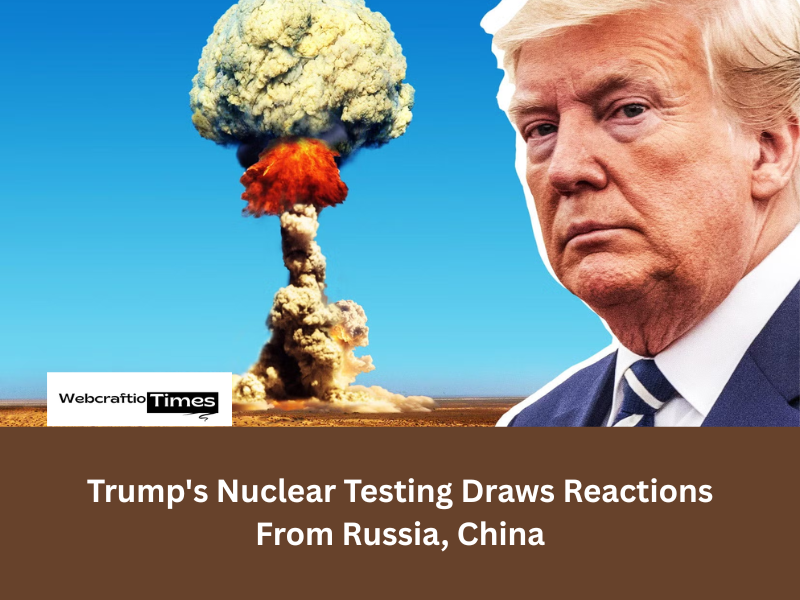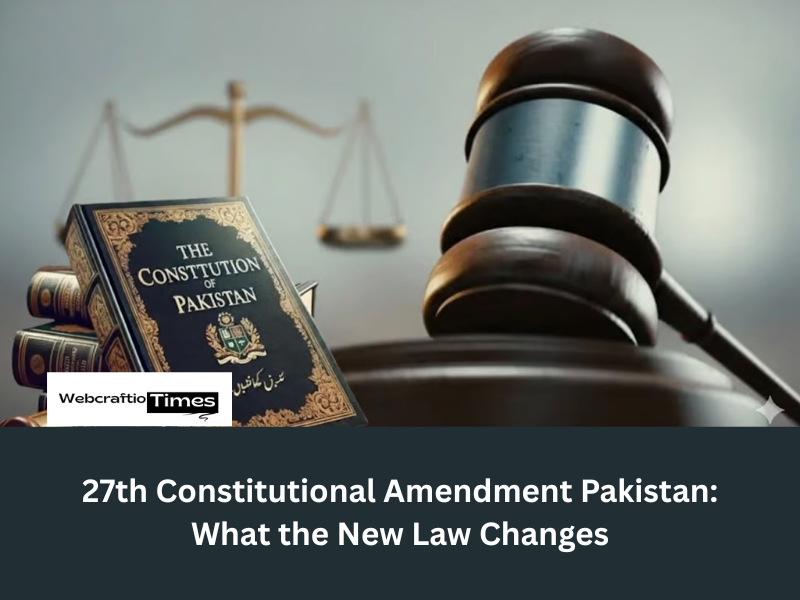Introduction
The announcement of Trump’s nuclear testing in 2025 has shaken global politics. The United States plans to restart nuclear weapons testing after more than three decades. The decision immediately sparked worldwide debate. Russia and China reacted strongly to the directive. Many experts see this as a turning point for international security.
President Donald Trump directed the Pentagon to prepare for renewed nuclear testing. He stated that the U.S. must match Russia and China in nuclear capability. The move signals a sharp break from previous U.S. policy. America has not conducted a full explosive nuclear test since 1992.
The plan for Trump’s nuclear testing in 2025 raises critical questions. Analysts ask whether this is a strategic necessity or a risky escalation. The announcement echoes an era of Cold War competition. It has revived old fears of a global arms race.
What Trump’s order means for the United States
Trump’s order represents a bold change in defense strategy. He argues that the U.S. should demonstrate nuclear readiness. The Pentagon now faces the challenge of preparing facilities for potential tests. Many American laboratories have relied on computer simulations instead of explosions for decades.
You May Read This: Trump-Xi Meeting Sparks New Talks on U.S.-China Trade Relations
Trump claims rivals are testing secretly. He says America cannot remain silent while others gain a nuclear advantage. Supporters believe real tests will strengthen national security. Critics say the opposite. They warn that such actions can destabilize international relations.
The United States has signed the Comprehensive Nuclear-Test-Ban Treaty. However, it never ratified it. Trump’s directive highlights this legal gap. The administration sees this as an opportunity to redefine deterrence.
Reactions from Russia and China
Russia and China expressed serious concerns about the announcement. Moscow said the U.S. decision risks ending the global test moratorium. Russian officials called the move “provocative.” They emphasized that renewed testing could harm strategic stability.
China’s foreign ministry urged the U.S. to respect international norms. Beijing said the world should avoid actions that trigger tension. Both nations insist they have not conducted new explosive tests. They accused Washington of undermining peace for political goals.
Experts note that Trump’s nuclear testing in 2025 could inspire reciprocal actions. If major powers restart nuclear tests, others may follow. The ripple effect could reshape the global security environment.
Impact on global arms control
The U.S. move challenges decades of progress in arms control. Since 1996, the Comprehensive Nuclear-Test-Ban Treaty has discouraged all nuclear testing. Even without ratification, most nations respect its principles.
Trump’s plan undermines this informal understanding. Many diplomats fear a breakdown in trust among nuclear states. Once one nation tests, others might justify doing the same.

Arms-control experts say resuming testing will not make weapons safer or stronger. Instead, it could damage America’s credibility. Global cooperation depends on restraint. Testing could erode that foundation.
The United Nations and the Comprehensive Nuclear-Test-Ban Treaty Organization both expressed concern. They urged all countries to avoid explosive tests. Many nations believe dialogue offers better security than confrontation.
Domestic political reactions
Inside the United States, the reaction is mixed. Supporters of Trump’s policy see it as decisive leadership. They claim America needs to stay competitive. They say simulation data alone cannot confirm reliability.
Opponents argue the opposite. They insist renewed testing is unnecessary and costly. They warn about environmental damage and international backlash. Several lawmakers have called for congressional oversight.
Scientists at nuclear laboratories also question the need for physical tests. They maintain that advanced simulation methods remain accurate. Restarting real tests would require expensive infrastructure and years of preparation.
Possible consequences for global security
The effects of Trump’s nuclear testing in 2025 could extend far beyond U.S. borders. Many analysts predict rising mistrust among world powers. Once one major nation begins testing, others may feel compelled to react.
The situation could escalate into an arms race. Nations like North Korea or Iran might view this as an excuse to advance their own programs. Regional stability in Asia and Europe could suffer.
Non-nuclear states may lose faith in existing treaties. That could weaken global non-proliferation efforts. Diplomatic isolation of the U.S. could also increase. Long-term, the decision may affect alliances and global defense cooperation.
How the policy affects South Asia
India, Pakistan, and China share a sensitive nuclear triangle. Any U.S. test could alter strategic thinking in this region. China’s reaction will influence its allies and neighbors.
If Beijing enhances its nuclear readiness, India may respond. Pakistan, in turn, could adjust its deterrence posture. Thus, Trump’s nuclear testing in 2025 might trigger a chain of regional reactions.
South Asia already faces tension over border disputes and security concerns. A shift in global nuclear norms can add pressure to existing rivalries. Analysts recommend diplomatic engagement to prevent miscalculations.
Technological and environmental factors
Modern nuclear testing involves complex technology and strict safety measures. Yet environmental risks remain significant. Test sites can suffer radiation contamination. Local communities may face long-term health hazards.
The U.S. stopped testing partly due to these environmental concerns. Restarting tests raises ethical and ecological questions. Climate and peace organizations have voiced opposition. They urge the government to consider sustainable alternatives.
Computer simulations, they argue, can verify weapon reliability without explosions. Many scientists agree. They claim simulation-based approaches meet all security needs.
Global diplomatic outlook
The international community will monitor U.S. actions closely. Diplomats expect discussions in the United Nations Security Council. Allies may pressure Washington to reconsider.
European nations, especially France and Germany, advocate for restraint. They want all nuclear powers to commit to dialogue. Multilateral negotiations could still prevent a new arms race.
For Trump, domestic politics may shape the next steps. The 2025 directive may serve as a show of strength. However, sustained global pressure could limit its implementation.
Conclusion
The debate over Trump Nuclear Testing 2025 is far from over. The policy marks a pivotal shift in U.S. defense and diplomacy. It reflects a vision focused on power projection rather than cooperation.
Russia and China’s reactions highlight the global unease surrounding nuclear competition. The coming months will reveal whether testing remains symbolic or becomes reality.
A return to physical nuclear explosions would carry high political and environmental costs. Dialogue and restraint remain the best paths toward stability. The world now watches closely to see how the United States balances strength with responsibility.
FAQs
1. What is Trump’s nuclear testing in 2025?
Trump nuclear testing 2025 refers to President Donald Trump’s directive for the U.S. to prepare for renewed nuclear weapons testing after more than 30 years.
2. Why did Trump announce new nuclear testing in 2025?
Trump said the move ensures the U.S. stays equal with Russia and China in nuclear capability and national defense readiness.
3. How did Russia and China react to Trump’s nuclear testing in 2025?
Both Russia and China criticized the plan. They warned that restarting tests could destabilize global security and arms control efforts.
4. When was the last U.S. nuclear test before Trump’s nuclear testing in 2025?
The last full U.S. nuclear test occurred in 1992 at the Nevada Test Site, ending decades of regular nuclear explosions.
5. Could Trump’s nuclear testing in 2025 start a new arms race?
Experts say yes. Renewed U.S. testing could push Russia, China, and other nuclear powers to resume or expand their own testing programs.



